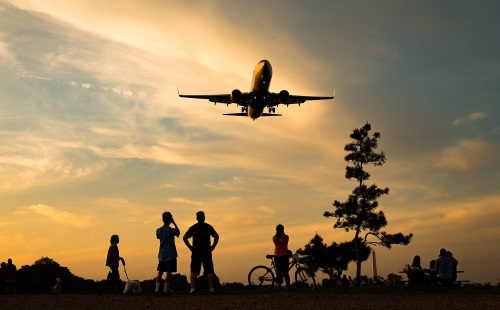The Federal Aviation Administration recently established an Airport Coronavirus Response Grant Program to distribute some $2 billion in COVID-19 relief funding included within a legislative package passed by Congress and signed into law by President Trump on December 27.
[Above photo by the FAA.]
The agency said in a statement that those funds are available to “all eligible airports that are part of the national airport system,” including all commercial service airports, all reliever airports, and some public-owned general aviation airports.
The FAA noted it is divvying up Airport Coronavirus Response Grant Program funds in the following manner:
- Primary commercial service airports – those with more than 10,000 passenger boardings per year – will share $1.75 billion based on the number of annual boardings, in a similar way to how they currently receive Airport Improvement Program entitlement funds.
- Primary commercial service airports will share an additional $200 million based on the number of annual boardings, and these funds will then be available for these airports to provide relief from rent and minimum annual guarantees to on-airport car rental, on-airport parking, and in-terminal airport concessions. Airports will provide this relief to each airport concession based on its proportional share of the total annual rent and minimum annual guarantees for the airport.
- Non-primary commercial service and general aviation airports will share $45 million based on their airport categories, such as national, regional, local, and basic. Of that $45 million, airports that participate in the FAA Contract Tower Program will divide $5 million equally.
In April 2020, the FAA disbursed approximately $10 billion to commercial and general aviation airports appropriated as part of the $2 trillion Coronavirus Aid, Relief, and Economic Security or CARES Act.
The agency followed that with $800 million in airport safety and infrastructure grants to 347 airports in July 2020, with another $335 million in September 2020.
 Nation
Nation
CTDOT Donates Project Award Winnings to Two Charities
January 23, 2026 Nation
Nation

